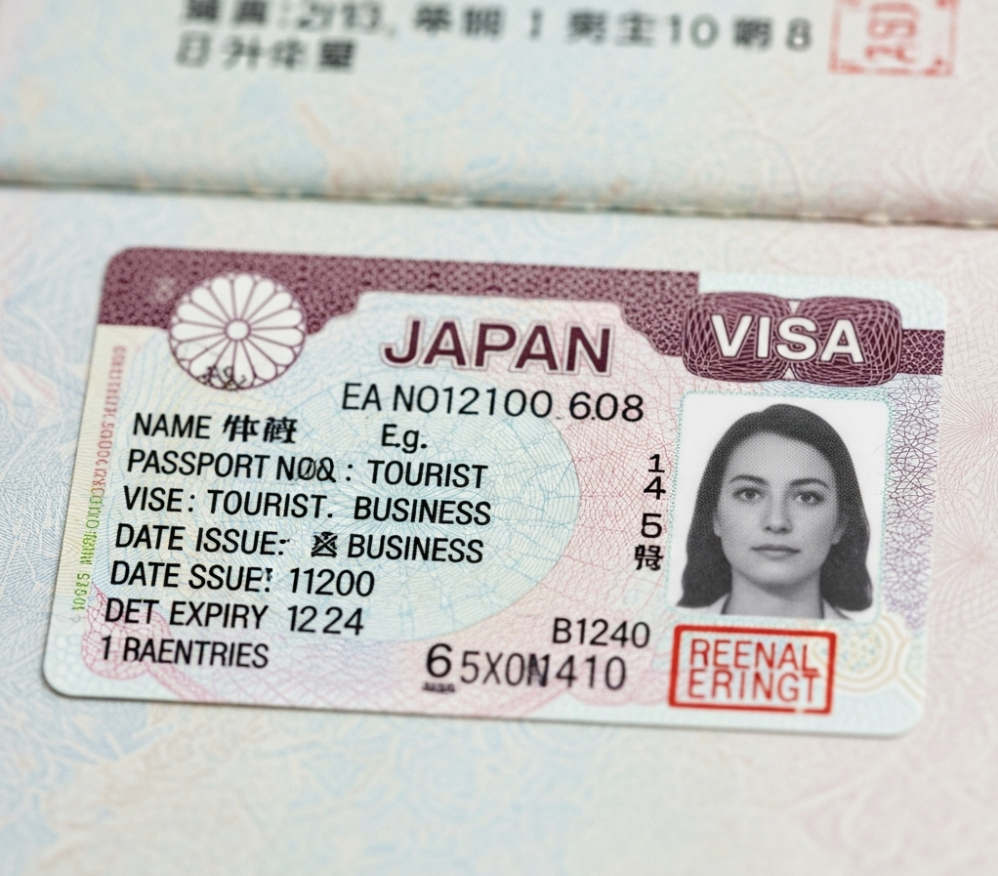Visa Options for Midlife Movers
If you’ve ever thought, “Isn’t it too late for me to move to Japan after 40?” — you’re not alone. Many people in their 40s, 50s, and beyond wonder if starting a new chapter in Japan is still possible. The truth is, it is possible — and the key is understanding your visa options for moving to Japan after 40 so you can choose the path that fits your lifestyle, skills, and long-term goals.
After 20+ years of running an English school in Niigata and supporting foreign teachers with visas, housing, and daily life, I’ve seen what works — and what doesn’t — for midlife movers. Let’s break it down step by step.

Why Trust This Guide?
Over the years, I’ve seen many friends and students go through the process of moving to Japan. The rules can be confusing at first, especially for long-term visas. To avoid misunderstandings, I always recommend checking the official guidance directly from the Immigration Services Agency of Japan. This is the same source immigration officers will refer to, so you can trust the information.
1. Work Visa Options for Moving to Japan After 40
For many midlife professionals, one of the most practical visa options for moving to Japan after 40 is the work visa — especially in education, IT, or consulting.
Here are realistic roles where 40+ expats succeed:
- English Teaching & Education
Still the most common entry path. Regional areas especially need teachers, and schools value life experience as much as age.- 💡Tip: In rural Japan, a car is almost essential. Many midlife teachers also register as self-employed and contract with multiple schools, which boosts income and helps with taxes.
- IT, Engineering & Tech
Japan faces a shortage of skilled professionals. Experience in software development, systems engineering, or project management is highly valued. - Consulting & Business Roles
International companies, HR departments, and marketing firms often look for people with real-world career experience. - Translation & Interpretation
If you’re bilingual, fields like legal, medical, or academic translation pay well. - If you hold advanced degrees, publications, or higher income levels, Japan’s points-based system can fast-track you toward permanent residency.
✅Highly Skilled Professional Visa (provides fast-tracked permanent residency based on a points system). I’ve written a full guide on the HSI visa Guide for Midlife Professionals, including tips for midlife professionals who want to boost their points and speed up their path to PR.
🌸 Aya’s Insider Advice
- Regional Japan (Niigata, Fukuoka, Kanazawa, etc.) offers steady jobs + lower living costs than Tokyo or Osaka. For a deeper breakdown, see my article on Moving to Japan After 40: Visas, Costs & Tips
- Many teachers in their 40s and 50s legally work part-time as contractors by applying for Immigration’s 資格外活動許可 (Permission for Side Work) — paperwork is involved, but it’s straightforward once your employer approves.
- Don’t assume Tokyo is your only option. Sometimes the best lifestyle balance is found outside the big cities.
2. Business Manager Visa & Entrepreneur Work Options After 40
If you dream of running your own school, café, or consulting company, this visa allows full business ownership.
- Requirements
- A registered business (KK or GK company structure)
- A physical office (not your home)
- Investment of at least ¥5 million (~$35,000 USD)
- Business plan + proof of financial stability
- Best For: Those serious about creating a long-term business presence in Japan.
3. Spouse Visa Work Options for Midlife Movers After 40
If you’re married to a Japanese citizen or permanent resident, this is by far the easiest and most flexible visa.
- Allows you to do any type of work — including freelance, teaching, consulting, or self-employment.
- Also provides a smoother path to permanent residency.
4. Long-Term Visa Options After 40
For those with Japanese ancestry (Nikkei) or other special ties, the Long-Term Resident Visa may be an option.
- Requirements vary case by case.
- Check details with the Immigration Services Agency (ISA).
5. Permanent Residency: A Key Visa Option for Moving to Japan After 40
Among all visa options for moving to Japan after 40, Permanent Residency stands out because it removes the stress of renewals and provides stability for retirement.
- Standard Path: 10 years of continuous residence in Japan (5+ on a work visa).
- Exceptions:
- Spouse of a Japanese citizen/PR → often eligible after 3 years of marriage + residence.
- HSI visa holders → can apply in as little as 1–3 years depending on points.
- Guardian Requirement (身元保証人):
Some applicants need a guarantor — usually an employer, spouse, or close Japanese friend. They don’t take on financial responsibility but do vouch for your conduct and stability.
👉 Want the full details? See my complete guide: Permanent Residency in Japan: A Midlife Perspective.
🌸 Aya’s Insider Advice:
For people in their 40s, 50s, or 60s, building long-term ties (stable job, community involvement, tax history) matters as much as years lived. Having a Japanese guarantor — whether an employer or trusted friend — can make the PR process smoother.
Applying for a Visa: Step by Step
- Choose Your Visa Type
Match your purpose (work, business, family) with the right visa category. - Obtain a Certificate of Eligibility (COE)
Usually arranged by your sponsor (employer, spouse, or school). - Apply at a Japanese Embassy or Consulate
Submit your COE, passport, and visa application. - Enter Japan & Receive Residence Card
Issued at the airport if your stay is 3+ months. - Register Locally
- Report your address at the city/ward office
- Enroll in National Health Insurance (NHI)
- Open a bank account if needed
Tips for Success at 40+
- Start Early: Some visas take months.
- Show Financial Stability: Japan wants to see you can support yourself.
- Stay Accurate: Mistakes in paperwork = delays.
- Plan for Renewal: Most visas must be renewed every 1–5 years.
Common Reasons for Visa Denials
- Incomplete paperwork
- Insufficient finances
- Prior immigration violations
- Weak ties to Japan (for sponsorship visas)
Final Thoughts
Moving to Japan after 40 isn’t just possible — it’s an opportunity to reinvent yourself. Whether you’re aiming to teach, consult, start a business, or join a Japanese spouse, there is a visa pathway for you. So if you’re serious about starting a new life abroad, begin by exploring your visa options for moving to Japan after 40 — each pathway can lead to a fulfilling and secure future here.
🌸 Remember: Age can be your strength. With resilience, financial stability, and the right paperwork, you can build a life in Japan that’s both secure and fulfilling.
👉 Aya’s Recommendation: Start by exploring whether a Work Visa with side-job permission or the Spouse Visa gives you the most flexibility. From there, plan for Permanent Residency if your dream is to stay long-term.
✨ Ready to take your first step?
I’ve put together a simple, free guide — the Top 7-Step Japan Move Checklist! — to walk you through the essentials of visas, housing, healthcare, and settling into daily life.
✨Download the Free 7-Step Japan Move Checklist!→
Download the Free 7-Step Japan Move Checklist!
Enter your email below, and I’ll send it straight to your inbox.
Thank you!
You have successfully joined our subscriber list.
It’s the exact roadmap I wish I could have given every teacher and expat I’ve supported over the past 20 years. Let this be your starting point toward building your new chapter in Japan. 🌸 If you’re also considering rural life, check out my post on Moving to Japan After 40: Visas, Costs & Tips — places like Niigata offer a very different pace of life compared to Tokyo or Osaka.

